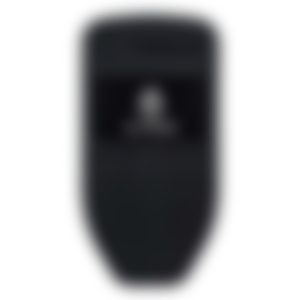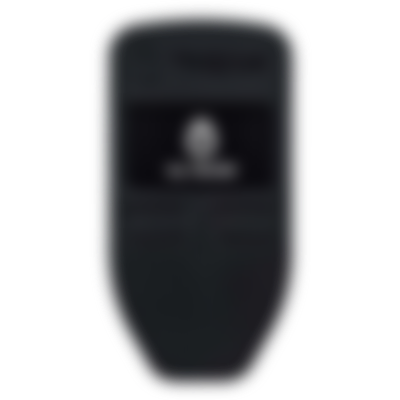Lead Image: Shutterstock
INTRODUCTION
For a start, a crypto wallet is basically a medium for storing cryptocurrencies and interacting with a blockchain network to perform transactions. It's quite synonymous with a traditional bank account (as with fiat currencies). The major difference between the former and the latter is the fact that crypto wallets allow for full user autonomy; literally, there are totally no banks involved!
Now, as we have it, there are basically two types of crypto wallets; software-based wallets and Hardware wallets.
While software wallets are the most widely used around the world today (as they are easily accessible by installing them as applications on mobile and allow for transactions at anywhere, anytime provided there's an internet connection), Hardware wallets work entirely differently.
Hardware wallets are special types of crypto wallets that individually store user public addresses and private keys on a secure hardware device. Hardware wallets can work offline i.e, a user does not require an internet connection to interact with the blockchain network.
STRUCTURE

Generally, most popular hardware wallets have the basic structure of a USB stick or miniature calculator with an OLED screen and usually, clickable buttons. They can be connected and accessed from a PC or mobile (in some cases). Although, how they can be connected may vary depending on various manufacturers.
EXAMPLES
There are a lotta various types of crypto hardware wallets out there however, it is quite interesting to note that the two companies; Ledger and Trezor are huge players in the market. Trezor is a major pioneer as far as secure hardware wallets are concerned, dating as far back as early 2014.
Common examples of the best crypto hardware wallets include;
-Ledger Nano X

Offered by the Ledger company, Ledger Nano X seems to be acclaimed as the best crypto hardware wallet in the market presently. It possesses really great features which include Bluetooth connectivity allowing for wireless connection to a smartphone or PC and the ability to store multiple cryptocurrencies at once.
It is built from stainless steel and plastic and comes with a 100mAh battery. The Ledger Nano X is currently priced at around $118 and the major cryptocurrencies supported include Bitcoin, Ethereum, Bitcoin Cash, Ripple, Litecoin, Monero, etc.
-Ledger Nano S

The Nano S is also a widely used crypto hardware wallet developed by Ledger. It has the structure of a compact USB device built based on a smart card. Unlike the Nano X, It does not possess a battery and can only be accessed by connection to a PC via a USB Cable. To set up the Nano S, a pin is required and this pin would be used to gain access anytime you have to use it.
The Ledger Nano S also supports a wide range of major cryptocurrencies. It is priced at around $59 and can be seen as a more affordable option.
-Trezor ONE

The Trezor One is a very popular crypto hardware wallet developed by Trezor.io. It is shaped like a small-sized calculator with an OLED screen and two clickable buttons. Trezor One can be used with Android devices and with apps such as Trezor Wallet, Mycelium, and Multibit HD.
Every wallet has a pin code that never leaves the wallet and guessing the pin without authorized access is a really difficult task. Trezor One supports over 1000 cryptocurrencies presently. It is priced at around $75
-Trezor T

Developed by Trezor.io as well, the Trezor T was built to be a better upgrade to the Trezor One. Both the Trezor One and Trezor T have similar basic features except for the latter having an improved touchscreen and buttonless interface coupled with better support for Ripple, Cardano, Monero, and Tezos.
The Trezor T costs around $159, making it one of the most expensive.
ADVANTAGES OF HARDWARE WALLETS
The use of hardware wallets has a good number of valid advantages;
Hardware wallets have immunity against computer viruses.
Hardware wallets often store private keys in a much safer manner that cannot be easily exposed even to your computer.
Most hardware wallets can be encrypted with a secure pin to provide an added layer of security
There's support for a wide range of cryptocurrencies
Since hardware wallets do not require an internet connection to operate, private keys cannot in any way, be exchanged over the network.
Most hardware wallet companies' software is usually open-source which allows users to validate the entire operation of the device.
DISADVANTAGES OF HARDWARE WALLETS
Despite having lots of advantages, hardware wallets seem to possess a few odds;
They are not easily accessible at any point in time
Hardware wallets are generally expensive to acquire
Sometimes, hardware wallets could have insecure RNG (Random number generator) problems, which could really give great opportunities to attackers.
In conclusion, asides from a few odds, Hardware wallets have a huge number of advantages generally. And if you are considering holding a coin for a very long time, you might want to look into getting one. This could help to ensure you have your coins securely stored for a long time.
Thank you for taking the time to read this, Kindly let me know your thoughts in the comments! :)






Hardware wallets are great but I'm used to mobile wallets as they are handy and makes accessing your funds much easier. I'm currently using Atomic Wallet and it works perfectly for me, might add a hardware wallet later.